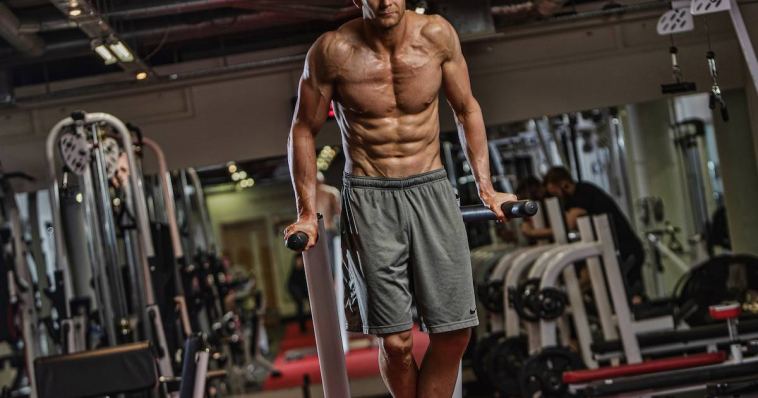- Like
- SHARE
- Digg
- Del
- Tumblr
- VKontakte
- Flattr
- Buffer
- Love This
- Save
- Odnoklassniki
- Meneame
- Blogger
- Amazon
- Yahoo Mail
- Gmail
- AOL
- Newsvine
- HackerNews
- Evernote
- MySpace
- Mail.ru
- Viadeo
- Line
- Comments
- Yummly
- SMS
- Viber
- Telegram
- JOIN
- Skype
- Facebook Messenger
- Kakao
- LiveJournal
- Yammer
- Edgar
- Fintel
- Mix
- Instapaper
- Copy Link
As I came to terms with the realities of being in lockdown I needed to come up with strategies to help my clients keep moving towards their goals. I decided to take the time at home as an opportunity to shed some body fat.
Obviously sensible dietary choices were going to be essential to this, but with my usual physical activity drastically reduced (that’s what happens when you trade 8 hours a day on the gym floor for sitting in front of your laptop), I needed to be intelligent about my training. One of the key tools I used for that is high-frequency weighted cardio.
To be able to take a high-frequency approach to any training method you need to be able to recover quickly. When it comes to high-frequency training, high levels of muscle damage and being sore for days are public enemy number one!
There is one often neglected training method that causes almost zero muscle damage, but provides a powerful training stimulus. And that is the method I will used to lean down during lockdown. So, here’s how I progressed on my lockdown plan.
Concentric-Only Training
There are two main phases of muscle contraction during resistance training:
The concentric phase is when a muscle shortens under tension. You can think of this as the lifting phase. The eccentric is when the muscle lengthens under tension. This is the lowering phase.
The eccentric phase is where most of the muscle damage occurs. Eliminating the eccentric phases means you can reduce the stress, muscle damage, and breakdown that occurs with traditional training.
I wouldn’t suggest excluding all eccentric training form your program indefinitely as the eccentric portion of the lift does carry many benefits and is a key piece of the size and strength puzzle. However, tactically removing the eccentric phase from certain elements of your training can have powerful benefits.
Concentric-only training creates the potential for:
- Higher training frequency
- More volume
Those are both very useful when it comes to fat loss. Even better, a 2017 study (Stock et al., 2017) showed that concentric-only strength training (involving minimal muscle damage) produced hypertrophy in just 3 – 4 weeks. So, concentric training can help you get lean and gain (or least preserve) muscle mass.
Research shows that concentric-only training produces much higher metabolic demands than eccentric training (Kraemer et al., 2001). Significantly greater VO2 and lactic acid levels are reached with concentric-only training. This increased metabolic cost equates to more calories burned.
Improved Recovery with Concentric-Only Training
Concentric-only training is very popular in injury rehab programs. In the early stages of rehab many therapists use high frequency concentric-only training as the first-step in strengthening muscles.
Improved recovery from injury is one benefit of concentric only training. Enhanced recovery between sessions is also a big plus of concentric only work.
Stimulating blood flow to the working muscles improves the recovery time from one heavy session to the next. This is why concentric only training is such a great addition to your regular workouts.
Bonus Training Not Overtraining
Concentric-only training means you can do “extra” or “bonus” training with a much lower risk of overtraining. Concentric only work allows you to get a training stimulus without the mechanical or neurological fatigue that regular training causes. Consequently, you can do more training with minimal risk of it interfering with your usual lifting sessions.
The more you can train without exceeding your capacity to recover the better your results. The fact that concentric training gives you the ability to increase your workload without exceeding your recovery capacity is a huge bonus when it comes to winning the body fat battle!
Powerlifters, Concentric Lifts and Conditioning
Westside Barbell popularised concentric-only training with the use of sleds for conditioning work. Pushing and pulling a sled is an incredibly effective fat burning workout. I’ve used it in the programs of countless clients to great effect. It’s one of the best ways to maximise fat loss while minimising muscle loss.
Unlike traditional cardio, sled work involves relatively high levels of resistance. This resistance signals the body to keep hold of muscle. As a result, you don’t waste away to looking like a marathon runner when performing weighted energy system work.
Concentric-Only Training at Home
Sadly, I don’t have a sled or enough outdoor space to use one. Living in central London means space is at a real premium. What I do have is 6 flights of stairs in my apartment block and these are what I’m using to get the same benefits of sled work.
Here is how:
- I load my back pack up with books and dumbbells
- I walk up the six flights of stairs
- I get in the lift and return to the ground floor
- I repeat for 5-10 sets
Walking upstairs is a predominantly a concentric activity. By loading my backpack up with textbooks and dumbbells I am able to add 50 lbs of external load. Walking up the stairs is like doing a hundred weighted step-ups.
I get in the lift to go back down because I’m lazy. Obviously, I’m joking, there is actually method to my madness/laziness. Walking downstairs with 50 lbs of extra weight involves lots of eccentric work and causes plenty of muscle damage.
Walking up and down stairs would mean that I would be sore and recovery would take longer. As a result, I wouldn’t be able to do this on a daily basis. Since I’m looking to use this method as my daily cardio taking the lift down is the smart choice.
So, if you have a back pack, something heavy to put in it and a staircase, you can get shredded while self-isolating.
Now, it looks like there is a sense of normality returning, although I think some people may still choose to workout at home until they feel comfortable going into a gym. Connect with my on my Tom MacCormick Instagram account and message me if you need some help.


